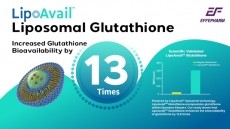Study confirms rooibos antioxidant potential
The researchers from the Antioxidant Research Laboratory in Rome found ingestion of fermented and unfermented rooibos tea increased TAC levels, measured as total antioxidant capacity (TAC).
But Professor Mauro Serafini and his team called for more intervention trials to investigate the proposition that rooibos tea can be as good an antioxidant source as green tea.
The study sought to measure how rooibos tea affects TAC levels as well as lipid triacylglycerols, cholesterol and glycemia plasma levels in humans.
In the trial, 15 healthy adults consumed either 500ml of water, unfermented or fermented rooibos teas, with fermented tea increasing antioxidant capacity 6.6 percent and unfermented tea increasing 2.9 percent.
No changes in triacylglycerols, cholesterol or uric acid were observed with any either of the teas or water.
The researchers noted that only a few studies had investigated the effects of rooibos tea in the body and they focused on iron status, antihistaminic effects and dermatological diseases. None of them investigate potential in vivo antioxidant properties.
“Hence, in the present study we evaluated the in vivo antioxidant properties of fermented and unfermented rooibos teas in healthy humans and related these to the in vitro antioxidant capacity of the beverages,” they wrote.
The subjects observed a low antioxidant diet for two days prior to the feeding period of the studies and dietary records were kept. Between feeding periods there was a two-week wash out and all subjects received all three treatments.
“The two rooibos teas exhibited a lower antioxidant potential than did green and black tea infusions but higher than commercially available instant tea,” the researchers said.
Flavonoid questions
But despite the positive antioxidant findings, the researchers enjoined with many other antioxidant researchers in being unable to explain or define potential antioxidant effects.
“On the basis of the data obtained in the bioavailability study, we cannot explain the in vivo antioxidant effect observed after ingestion of the rooibos teas. This is not unusual in intervention studies with antioxidant rich foods where most of the investigations showing an increase in plasma antioxidant defences, measured as TAC, have failed to identify the components responsible, raising questions as to the direct involvement of flavonoid metabolites as antioxidant molecules in vivo.”
Source:
Food Chemistry
123 (2010) 679–683
‘Unfermented and fermented rooibos teas (Aspalathus linearis) increase plasma total antioxidant capacity in healthy humans’
Authors: D. Villaño et al













